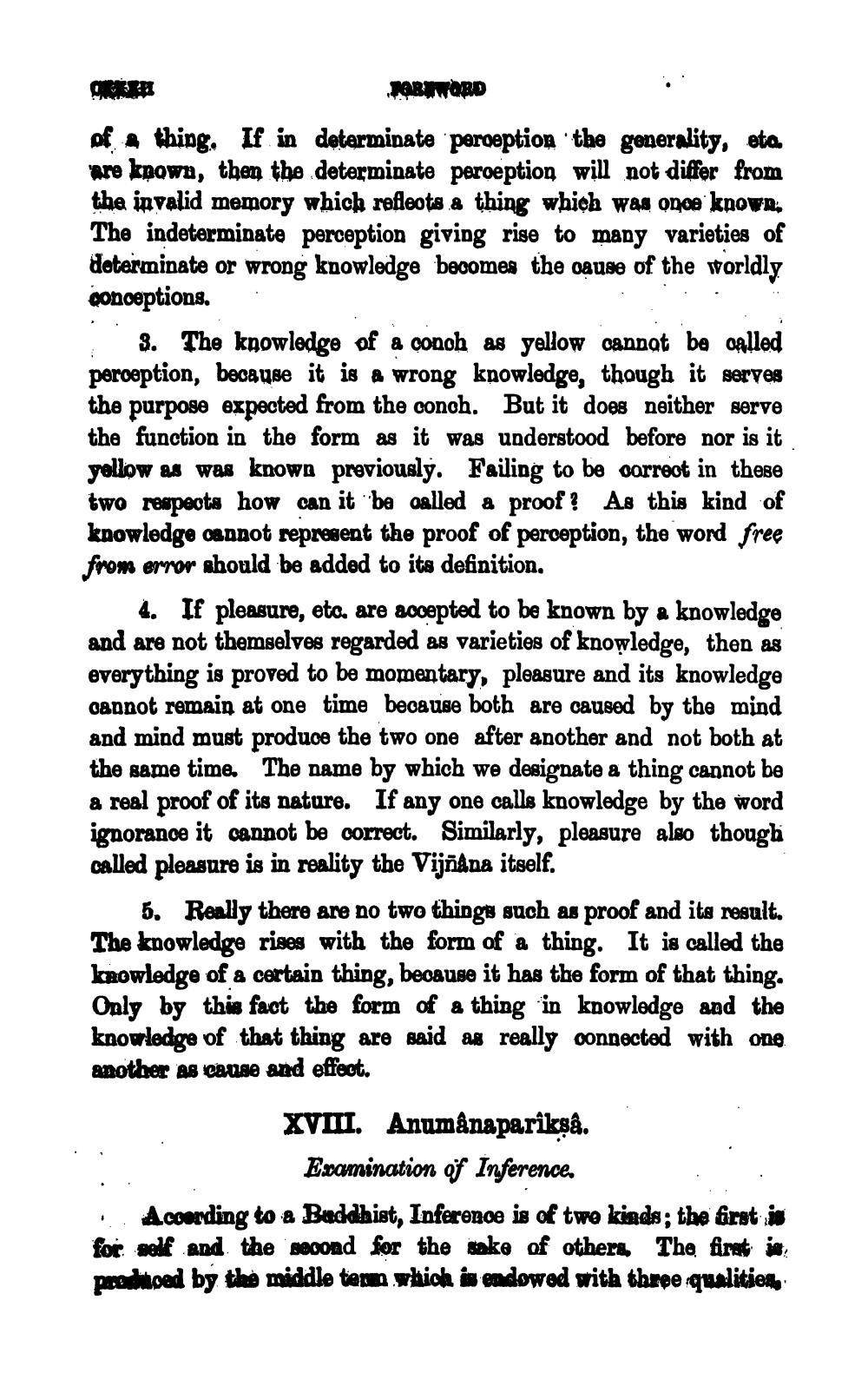________________
FORWARD of a thing. If in determinate perception the generality, eta are kpown, then the determinate perception will not differ from tha invalid memory which reflects a thing which was once known. The indeterminate perception giving rise to many varieties of determinate or wrong knowledge becomes the cause of the worldly conceptions.
8. The kņowledge of a conoh as yellow cannot be oplled perception, because it is a wrong knowledge, though it serves the purpose expected from the conch. But it does neither serve the function in the form as it was understood before nor is it yellow as was known previously. Failing to be oorroot in these two respects how can it be oalled a proof! As this kind of knowledge cannot represent the proof of perception, the word free from error should be added to its definition.
4. If pleasure, eto. are accepted to be known by a knowledge and are not themselves regarded as varieties of knowledge, then as everything is proved to be momentary, pleasure and its knowledge cannot remain at one time because both are caused by the mind and mind must produce the two one after another and not both at the same time. The name by which we designate a thing cannot be a real proof of its nature. If any one calls knowledge by the word ignorance it cannot be correct. Similarly, pleasure also though called pleasure is in reality the Vijñana itself.
5. Really there are no two things such as proof and its result. The knowledge rises with the form of a thing. It is called the knowledge of a certain thing, because it has the form of that thing. Only by this fact the form of a thing in knowledge and the knowledge of that thing are said as really connected with one. another As cause and effect.
XVIII. Anumânapariksa.
Examination of Inference. According to a Buddhist, Inference is of two kinds; the first in for self and the second for the sake of others. The first in prenditored by the middle tem which is endlowed with three qualities




